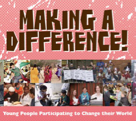The results are in from the most accessed resources of 2018 in the resources library, and the findings cover teaching packs, learning resources, videos and more.
This blog forms part of developmenteducation.ie’s Web Trends Report 2018 and opendata initiative. For more, see the top 10 blogs of the year.
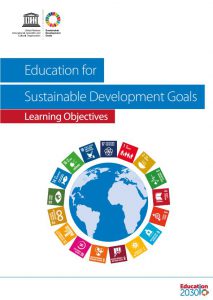
1. Education for Sustainable Development Goals: learning objectives
This publication guides readers on how to use education, especially Education for Sustainable Development (ESD), to achieve the SDGs. It identifies learning objectives, suggests topics and learning activities for each SDG, and describes implementation at different levels from course design to national strategies.
Published by UNESCO
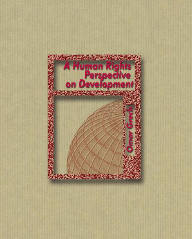
2. A Human Rights Perspective on Development
By Omar Grech
This booklet provides an alternative ‘lens’ with which to view traditional responses and ways of thinking and acting to development challenges. It defines human rights, analyses international human rights law and links human rights to development and development to human rights.
Published by 80:20 Educating and Acting for a Better World
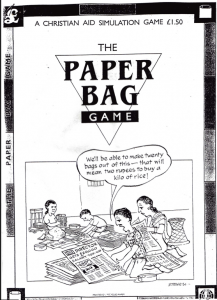
An interactive game that gives an insight into what life is like for poor people who are trying to earn a living. The game focuses on children living in poverty in India. It challenges young people to find out if they could survive on the streets of Kolkata.
Published by Christian Aid UK
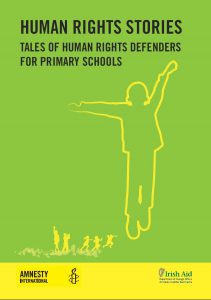
4. Human rights stories: tales of human rights defenders for primary schools
This primary school resource provides five inspirational tales of human rights defenders – Fela, Maria, Bobo, Ishmael and Farai. Based on true stories, the tales chronicle the social challenges, lifestories and how each of them defended human rights in their own countries
Published by Amnesty Ireland

5. Life stories: exploring identity with young people
An educational activity pack that gives a voice to young people from a diverse range of minority groups in Ireland. The young people’s stories form the basis of the pack. These stories are supported by group work, simulation games, drama and art activities, which enable young people to explore identity in Ireland and around the world.
Published by the National Youth Council of Ireland
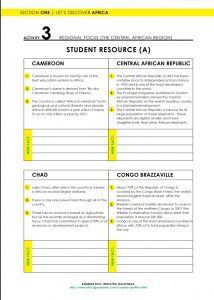
6. Africa regions series – Central Africa, East Africa, North Africa and South Africa
A set of on-line downloadable educational resources and maps that explore the African continent based on region.
Published by the Africa Centre
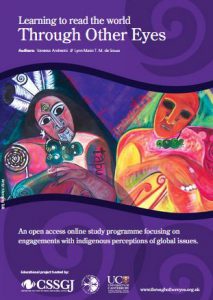
7. Learning to Read the World Through Other Eyes
By Vanessa Andreotti & Lynn Mario T. M. de Souza
The ‘Through Other Eyes’ four-part open access study programme is designed for individual or group work, and addressing the underlying values, assumptions that often remain unaddressed in global citizenship and development education.
Published by Global Education Derby
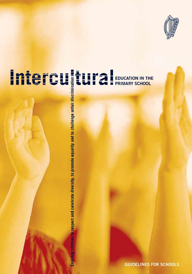
8. Intercultural Education in the Primary School – guidelines for schools
These guidelines are designed to provide support for all the members of the school community, including teachers, school managers, support staff and parents. In this respect, they deal with a wide range of issues including school planning, classroom planning, assessment and the language environment. They are designed to be accessible to people approaching the curriculum from a range of different perspectives.
Published by the NCCA
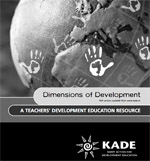
9. Dimensions of Development: a teacher’s development education resource
This 9-page resource offers an introduction to development education for Primary teachers.
Published by Kerry Action on Development Education (KADE)
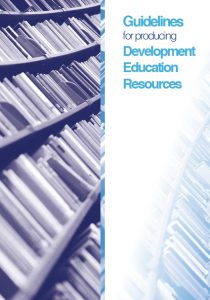
10. Guidelines for Producing Development Education Resources
By Fiona Coyle, Tony Daly, Mary Hanlon, Eimear McNally and Ciara Regan
The Guidelines for Producing Development Education Resources are offered to development educators, teachers, youth workers, writers and development workers in non-governmental organisations as a stimulus tool for planning and producing resources.
Published by developmenteducation.ie, Dóchas and the Irish Development Education Association (IDEA)
11. Short film: yu ming is ainm dom
Yu Ming Is Ainm Dom (My Name Is Yu Ming) is the story of a young Chinese man, who is disillusioned with his dead-end job at a supermarket. A spin of the globe leads him to choose Ireland as the destination for his new life and further research informs him that the official language of that country is Gaelic.
Arriving in Dublin speaking the language, he is puzzled when nobody can understand him.
12. Challenge to Change – a Development Education Project in Presentation Schools
The annual Challenge to Change resources feature DE project work as part of development education projects aimed at young people attending Presentation primary and secondary schools in Ireland.
The initiative seeks to raise awareness and understanding of development issues and global inequality through the exploration and engagement in issues surrounding as (in)justice, human rights, fairtrade, racism, exploitation, etc.
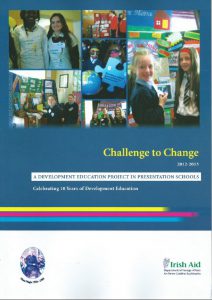
13. Ken Robinson (short film) – Do schools kill creativity
Published by the RSA
14. The White Tiger – book review
Book review by Mary McCarthy of Aravind Adiga’s novel The White Tiger which tells the story of Balram, a former rickshaw-puller’s son from rural India who has reinvented himself as a successful businessman living in Bangalore. He now runs a taxi business ferrying IT employees to their jobs and is not short of cash – provided the bribes are paid to the police.
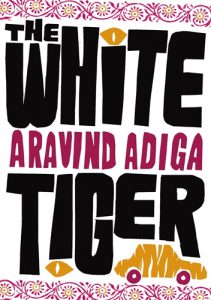
15. Learning to Change the World: An Audit of Development Education Resources 2013-2016
By Tony Daly, Ciara Regan and Colm Regan
This longitudinal study is part of the ongoing research agenda of developmenteducation.ie in monitoring, evaluating and generally taking stock of development education (DE) resource produced in Ireland.
Published by developmenteducation.ie
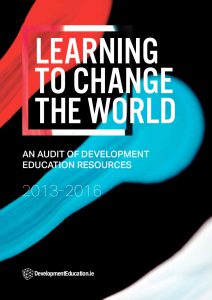
16. A Matter Of Life and Death – introduction to the death penalty for second level students
Provides teachers with a detailed guide on teaching the death penalty in the classroom. Divided into four lessons this plan covers an introduction to the topic, a quiz and case studies, a ‘for and against’ section, and ‘how to take action’. Each topic has accompanying worksheets/teaching tools.
Published by Amnesty International (Ireland)
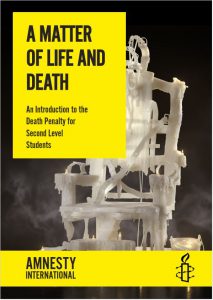
17. Global South Resources – South Africa Lesson Plan
A series of activities that are designed for use with second-level students who are establishing a link with a school in South Africa or have already established the link but need more classroom support.
The activities focus on preparing students for a global learning experience and getting to know their peers in South Africa, as well as working with primary source materials and evaluating their accuracy.
Published by the Waterford One World Centre
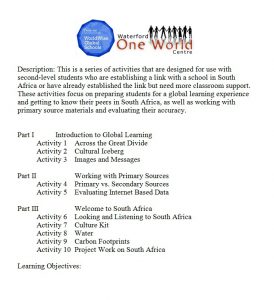
18. If the world were a village
This brilliant 32-page full colour children’s book imagines what a ‘global village’ would look like if there were 100 people living in it. Basing his statistics on world population – at the time 6.4 billion, but now already 7 billion people – Smith describes the book as being about “world-mindedness,” which explores the lives of people from various cultures around the world and their ways of life.
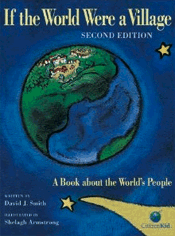
19. What do we mean by development?
By Lalage Bown
A discussion document which explores different descriptions of development for teachers, students and development educators rather than providing a comprehensive definition of development or development theories. It aims to provide clarity to development definitions and to link “models of development with the here-and-now problems of real people.”
Published by 80:20 Educating and Acting for a Better World
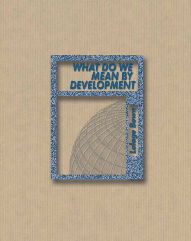
20. Making A Difference! – Young People Participating to Change their World
An education resource exploring the issue of youth participation. It asks what participation means to young people in Ireland and around the world and what impacts it has on young people locally and globally.
The resource also examines possible barriers to young people’s participation and presents positive examples (under the framework of the Millennium Development Goals, for example) of the many different ways in which young people participate around the world.
Published by the National Youth Council of Ireland (NYCI)
